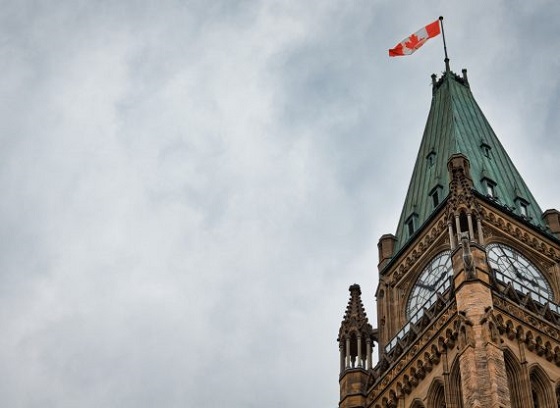These are happy days at the Canadian Broadcasting Corporation.
With the threat of a “defund the CBC” Conservative government fading ever faster in its rearview mirror, the nation’s publicly-funded commercial news and entertainment corporation (aka public broadcaster) is poised to take an even larger share of the market thanks to Prime Minister Mark Carney’s first budget.
Please consider becoming a free or paid subscriber to The Rewrite.
Your encouragement is appreciated.
Sure, tens of thousands of public sector employees may be about to lose their jobs, services face cutbacks and the feds might be rewriting collective bargaining rules in their favour. But as we learned Nov. 4, the CBC will – as promised in last spring’s election – get a $150 million top up to the $1.4 billion Parliament already allocates to it. There’s every chance that means it will be an even more aggressive competitor in the news market for viewers, listeners, readers and advertisers. One in three working journalists in the country already work for CBC/Radio Canada. If an 11 percent hike in funding is reflected in newsroom job growth, that number could move closer to 37 per cent.
Federal funding for “private sector” news organizations has remained flat (with the exception of a $12 million boost to a fund introduced as Covid relief). That means the news industry playing field has been tilted even more in the CBC’s favour, making it harder for outlets that are not the CBC to compete or even survive. There will be less opportunity for news innovators and increased private sector job losses will lead to demands for larger subsidies from industry lobby groups such as News Media Canada and the Canadian Association of Broadcasters. Good news for the CBC means bad news for others. This is either a really bad mistake by Carney or, making the CBC even more dominant as a news source (it has the most popular domestic website) is part of his plan.
Further brightening the outlook for journos at the Mother Corp was the news from CBC President Marie-Philippe Bouchard that there’s no need to investigate antisemitism within its ranks and, while its relationship with rural and western Canadians could be better, it’s unlikely the status quo will be disrupted. Editor in Chief Brodie Fenlon confirmed that conclusion by testifying before a Senate committee that the CBC’s newsrooms are the least biased he’s ever worked in.
Yup, life at the Mother Corp’s looking rosier than ever.
Perhaps as an unintended metaphor for CBC’s growth at private media’s expense, Postmedia’s Brian Passifiume illustrated his relative poverty by jocularly complaining about the lack of a free lunch for those within the budget lockup.
Time was when journos would refuse a free lunch from a subject of their coverage. Now they complain publicly about not getting one.
Speaking of the budget, a couple of items caught the eye.
One was the jaw-dropping Tweet by the Hill Times’ Stu Benson noting how journalists were partying post-budget at Ottawa’s trendy Metro Brasserie with government MPs and bigwigs. It, accompanied by photos, stated:
“Hundreds of politicos, journalists, and libatious Liberals joined Finance Minister François-Philippe Champagne for a post-budget victory lap at the @MetroBrasserie_ on Nov. 4 at @EarnscliffeCda X @politicoottawa’s”
In response, Twitter sage Norman Spector shared Benson’s post and wrote:
“How it works in Ottawa: Politicos, journalists and Liberals at a post-budget victory lap – a shindig co-sponsored by a lobbying firm.”
And media wonder why so many no longer have faith in them?
The other item involved what is termed an “advance” story posted by the CBC. The problem wasn’t that the story failed to contain all the key elements and expected perspectives. It did. The problem was that none of those were introduced at all until the 10th paragraph and you have to go another 28 paragraphs or so before the Conservatives, Bloc and NDP are even mentioned, making the piece read like a government news release. This is a common error in newsrooms where staff should know by now that most people consume news by reading a headline and – give or take – the top six paragraphs before moving on.
So, unless reporters introduce balance within the first three paragraphs, most people will be unaware that alternative views exist.
CBC is hardly alone in making this error, although its dominance in the market enhances its impact.
Please consider becoming a free or paid subscriber to The Rewrite.
Your encouragement is appreciated.
During my spells in Ottawa – briefly within the Parliamentary Press Gallery and longer at the CRTC – I was struck by how little so many reporters working there know about how government and its institutions actually work.
Most, in my recollection, cover only the drama, intrigue and theatre of politics. For too many, the daily routine consists of scanning news releases, phoning their contacts and watching Question Period on CPAC before venturing (maybe) across Wellington Street (is it still called that?) for a scrum or two.
What most don’t bother with at all are some of the most important aspects of the machinery of government such as the work of committees, the regulations that follow passage of legislation or, as Blacklock’s Reporter Publisher Holly Doan pointed out last week, the estimates that follow a budget.
These are important matters and the lack of coverage by subsidized media leaves the public ill-informed. For instance, as the Liberals move to buy off opposition MPs to form a majority government people did not vote for, they will also be able to claim control over committees.
So, as the nation morphs inexorably into a permanent one-party state, the absence of coverage in these areas will be increasingly evident. If you want to be a fully informed citizen, find a news outlet that covers these important matters and subscribe.
Share
A little more than a year ago, people were being fired at CTV for manipulating quotes from Conservative leader Pierre Poilievre.
That practice delivered an even more devastating impact on public trust in journalism when it was revealed that the BBC program Panorama had blended two phrases from US President Donald Trump. As The Standard reported:
“In a clip from a Panorama programme, broadcast before the election, Trump appears to tell supporters: “We’re going to walk down to the Capitol…and I’ll be there with you. And we fight, we fight like hell.
“But the words were taken from different sections of his speech, nearly an hour apart. In the original footage, his language is more restrained: “We’re going to cheer on our brave senators and congressmen and women,” adding his supporters will march “peacefully and patriotically” to make their voices heard.”
Opposition MPs are demanding an inquiry. In this clip, GB News takes no prisoners. Reports Saturday indicate the chair of the BBC would be officially apologizing.
Michael Geist is not a journalist. He’s a law professor and internet expert. And his coverage of the budget – in a Substack note – was a fabulous example of the importance of a free and open internet as a source of valuable information about important matters overlooked by mainstream media. He said:
“Canadian government departments are big believers that AI will be the source of reducing expenses. Finance, Justice, CRTC, Fisheries, CRA, ESDC all cite new efficiencies from AI to explain how they will meet the 15% spending reduction target in the budget.”
And, as I wrote in The Line a couple of months back:
“Two years ago, the Liberals were hoping to claim they’d saved legacy media from Big Tech. All they really did was stake it for AI to devour.”
But you won’t read that in legacy media. Just here. Tell your friends.
Oh and one last treat for those of you who enjoy a snappy front page:
Readers will notice a new DONATE button has been added. Please consider making use of it and help us save journalism from bad journalism.
Donate
(Peter Menzies is a commentator and consultant on media, Macdonald-Laurier Institute Senior Fellow, a past publisher of the Calgary Herald, a former vice chair of the CRTC and a National Newspaper Award winner.)























